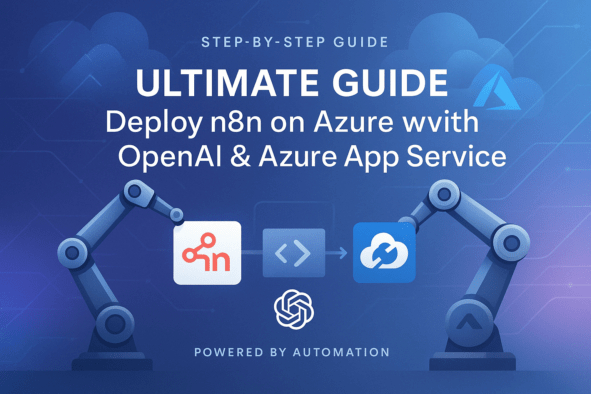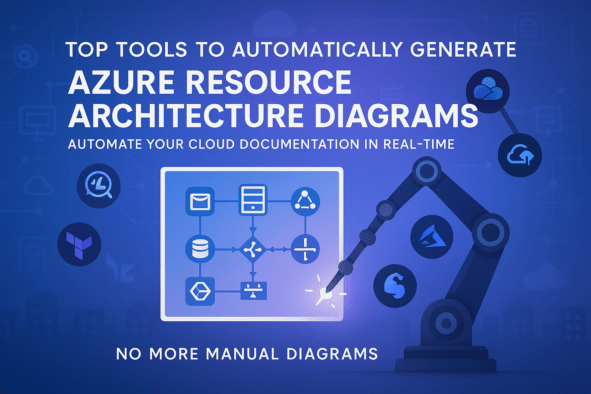Introduction to n8n: Flexible Automation with Azure Integration
n8n is a flexible, open-source workflow automation platform that combines the ease of no-code with the power of code. Designed for developers and technical teams, it supports over 400 native integrations, offers built-in AI capabilities, and operates under a fair-code license—giving you full control over data, workflows, and infrastructure.
This guide provides a complete walkthrough for deploying n8n on Azure App Service, integrating with Azure OpenAI and Microsoft Outlook. You’ll use automated deployment scripts and follow clear, visual instructions to create intelligent, enterprise-grade workflows.
Key Features of n8n
- Flexible Development: Build with JavaScript or Python, or use the visual interface—no coding required. Add custom logic using npm packages.
- AI-Native Platform: Integrate with LangChain and Azure OpenAI to develop AI-powered agents and decision systems.
- Full Deployment Control: Deploy self-hosted under a fair-code license or opt for the managed n8n Cloud.
- Enterprise-Ready: Supports advanced features such as RBAC, SSO, audit logs, and air-gapped deployments.
- Expansive Ecosystem: 400+ native integrations and 900+ ready-to-use workflows.
Why Choose Azure for n8n?
- Managed Infrastructure: No need to manage VMs or servers.
- Elastic Scalability: Automatically handles workflow spikes.
- Enterprise Security: Integrated with Azure AD and enterprise-grade compliance.
- Native AI Access: Seamless integration with Azure OpenAI.
- Cost-Efficiency: Pay-as-you-go model with consumption-based billing.
What This Guide Covers
- ✅ One-click deployment of n8n and Azure resources
- ✅ Integration with Azure OpenAI
- ✅ Optional Outlook 365 OAuth2 setup
- ✅ Visual troubleshooting and step-by-step screenshots
Prerequisites
- Azure Account (Free Tier available with $200 credits)
- GitHub Account (For optional Codespaces deployment)
- Azure CLI installed (installation guide)
- Basic Terminal Knowledge
One-Click Deployment on Azure
This method uses an automated Bash script to provision everything required for n8n to run on Azure, including:
- Azure Login Verification
- Resource Group Creation
- Storage Account & Connection String
- Linux-based Azure App Service Plan
- Docker-based Web App Deployment
- Azure OpenAI Resource Setup
- Optional Outlook OAuth2 Configuration
- App Settings and Auto-Restart Configuration
Step-by-Step Deployment Instructions
Step 1: Clone the (n8n Azure Deployment repository) and execute the Script
#!/bin/bash
URL="https://github.com/3tallah/n8n-azure-deployment/archive/refs/tags/v3.0.1.zip"
OUTPUT="n8n-azure-deployment-v3.0.1.zip"
# Download
curl -L "$URL" -o "$OUTPUT"
# Extract
unzip -o "$OUTPUT"
# Remove ZIP
rm "$OUTPUT"
# Execute a script from the extracted folder (example: deploy.sh)
cd n8n-azure-deployment-3.0.1
bash deploy-n8n-azure.sh
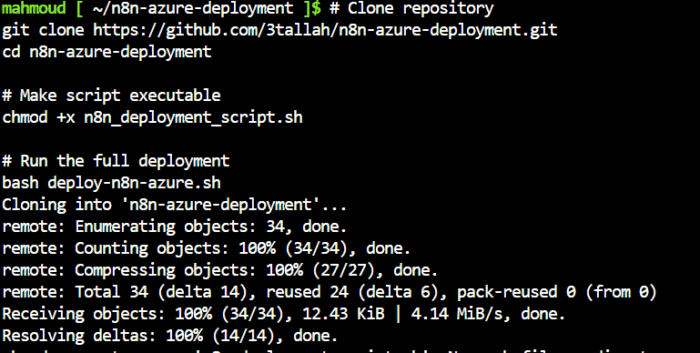
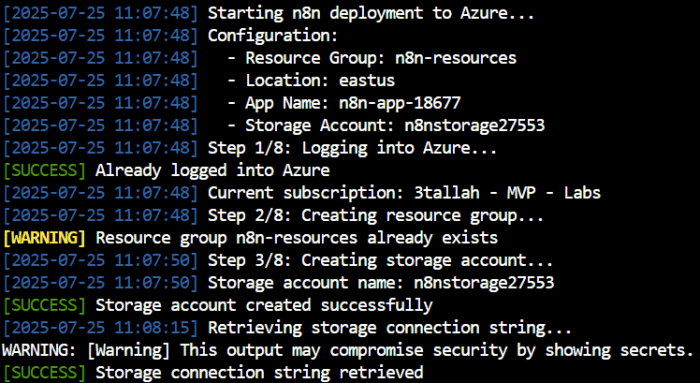
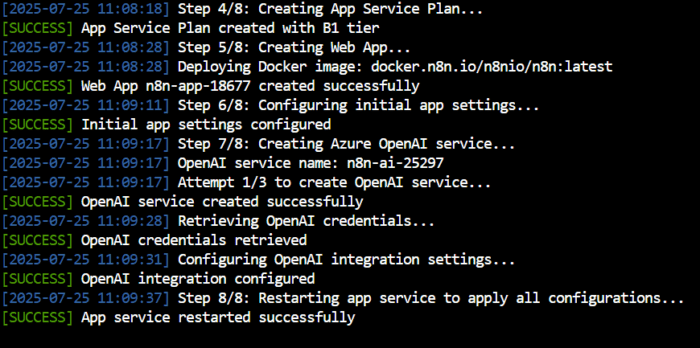
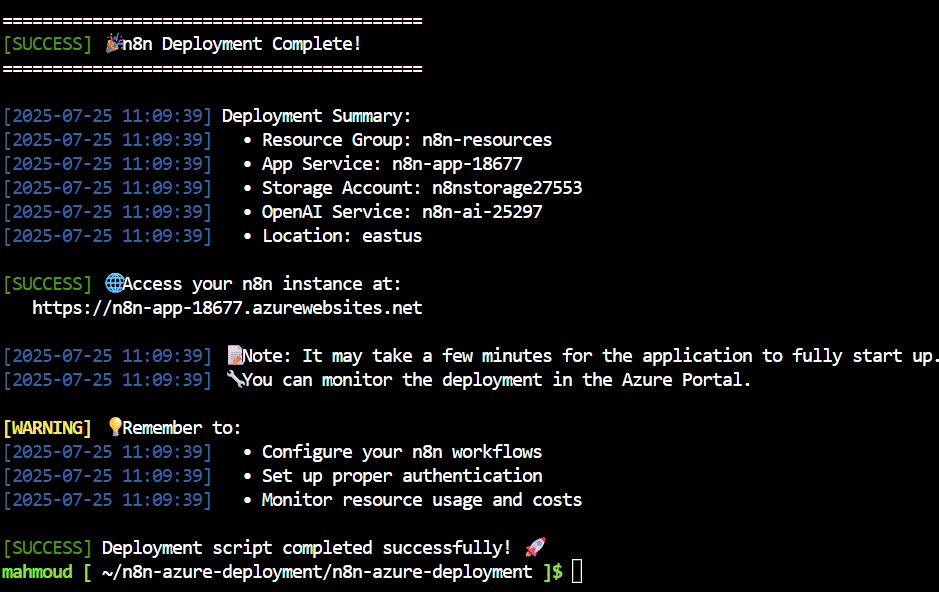
Step 2: Script Provisions Azure Resources
The script will:
- Log into Azure (if not already logged in)
- Create a resource group and a storage account
- Deploy the App Service using a Docker container
- Set required environment variables (
WEBSITES_PORT,AZURE_STORAGE_CONNECTION_STRING) - Provision Azure OpenAI with endpoint and key
- Placeholder for Outlook OAuth2 Configuration
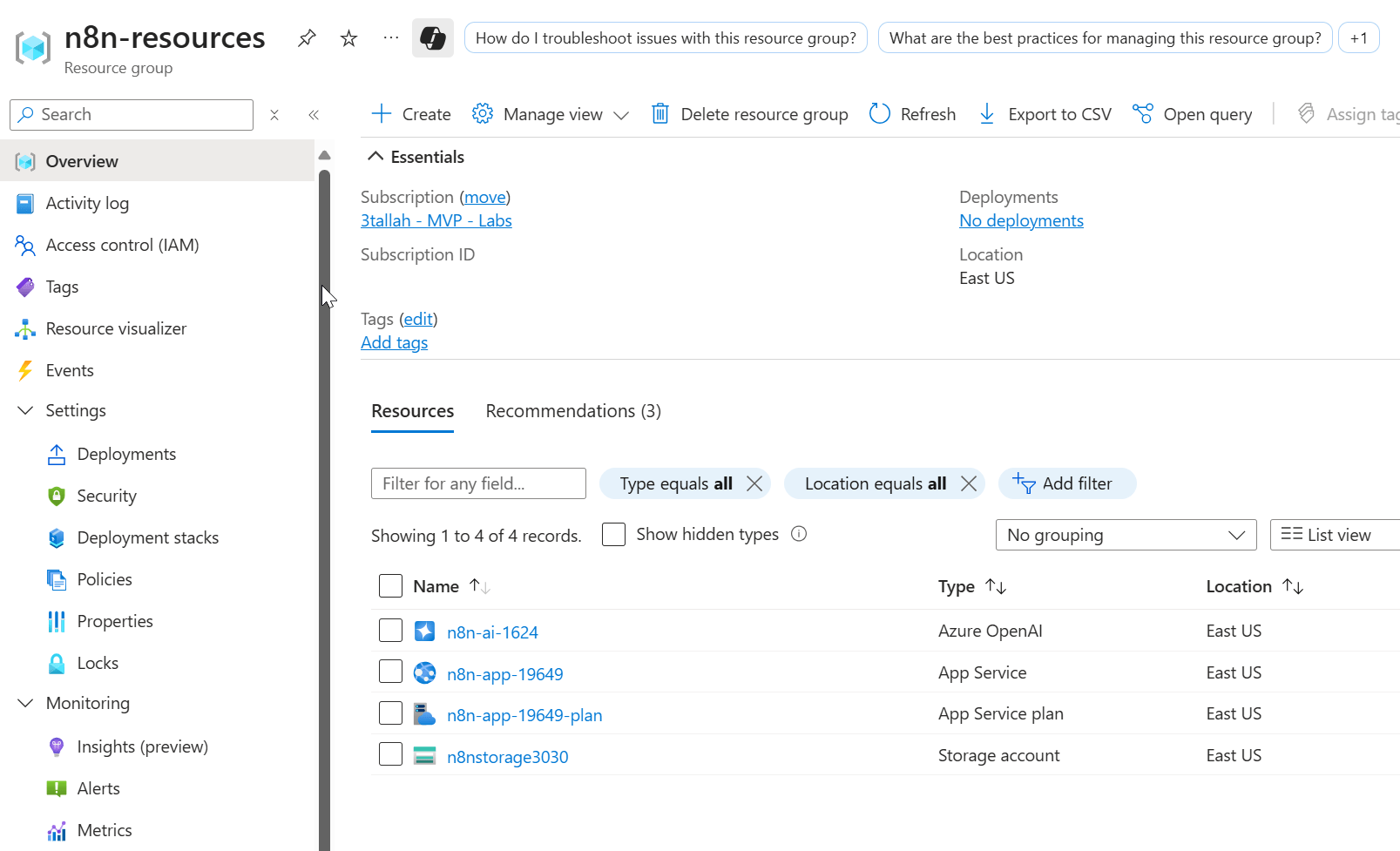
Step 3: Access Your n8n Instance
Once the script completes:
- Your Web App has been restarted
- The public URL is displayed in the terminal
- You can access the n8n editor via the browser
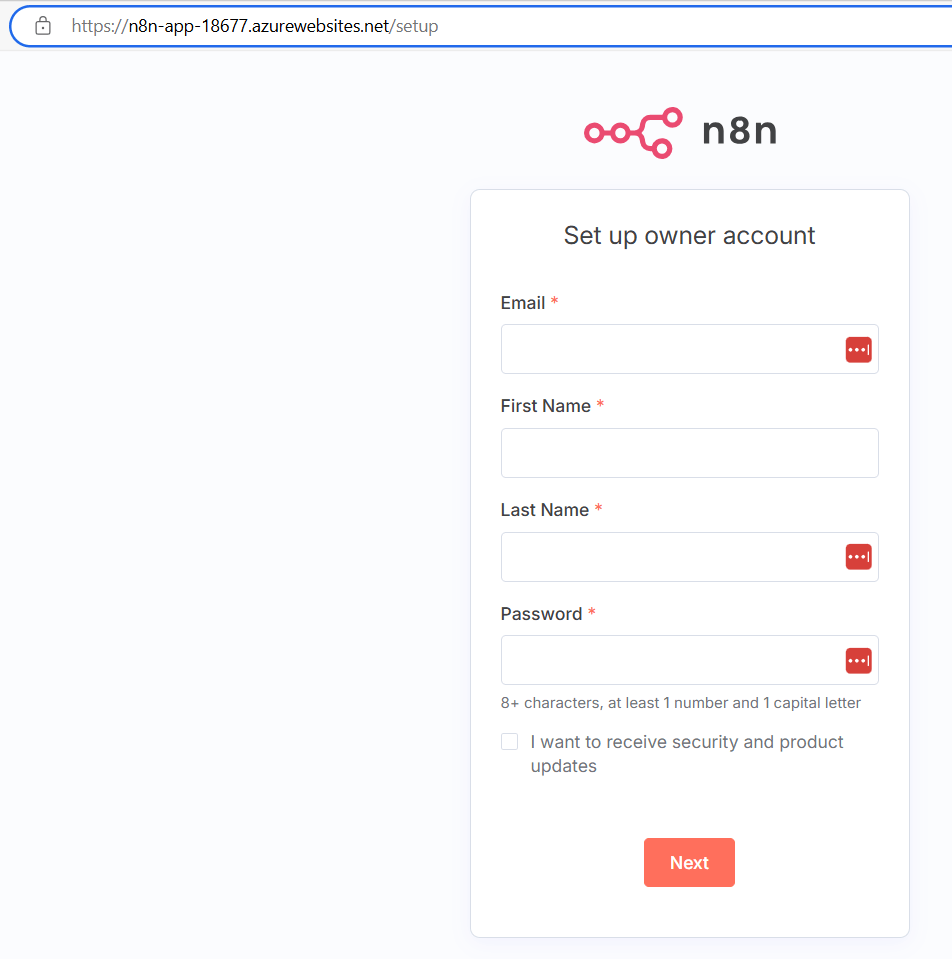
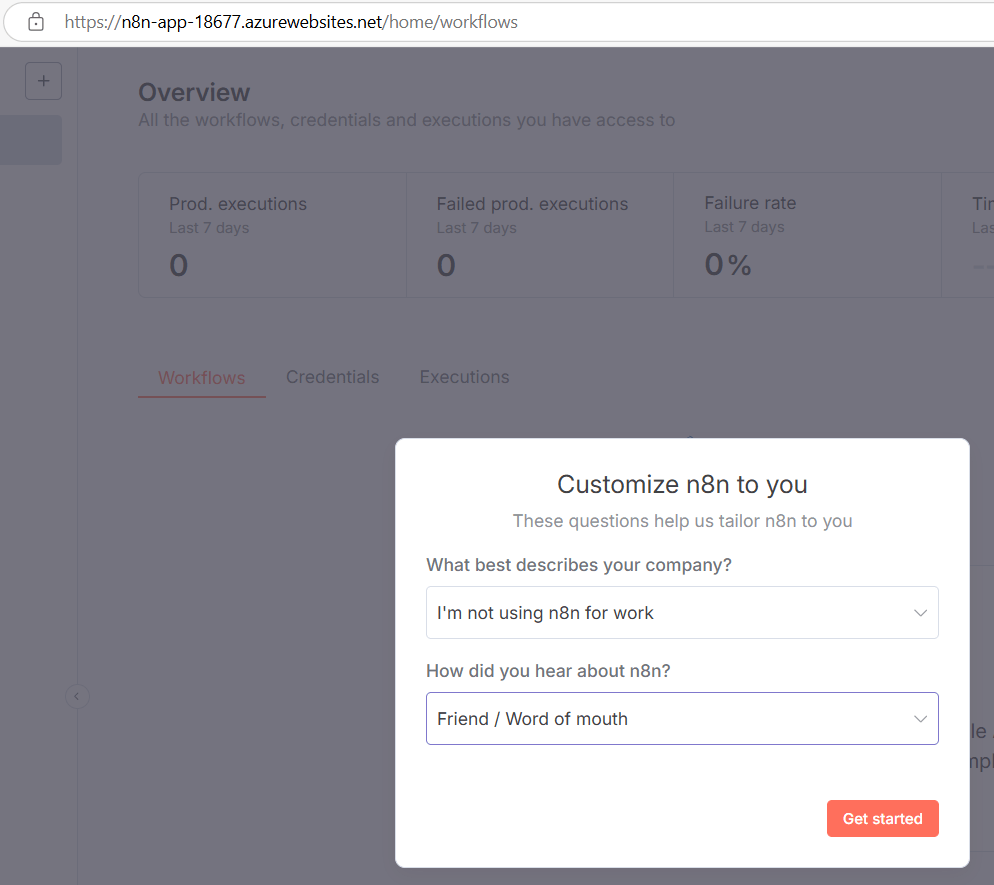
AI-Powered Workflows with Azure OpenAI
With the Azure OpenAI integration:
- Build workflows that auto-generate emails, summaries, or responses
- Use your data in LangChain-enabled workflows
- Connect to external APIs or enterprise systems for decision automation
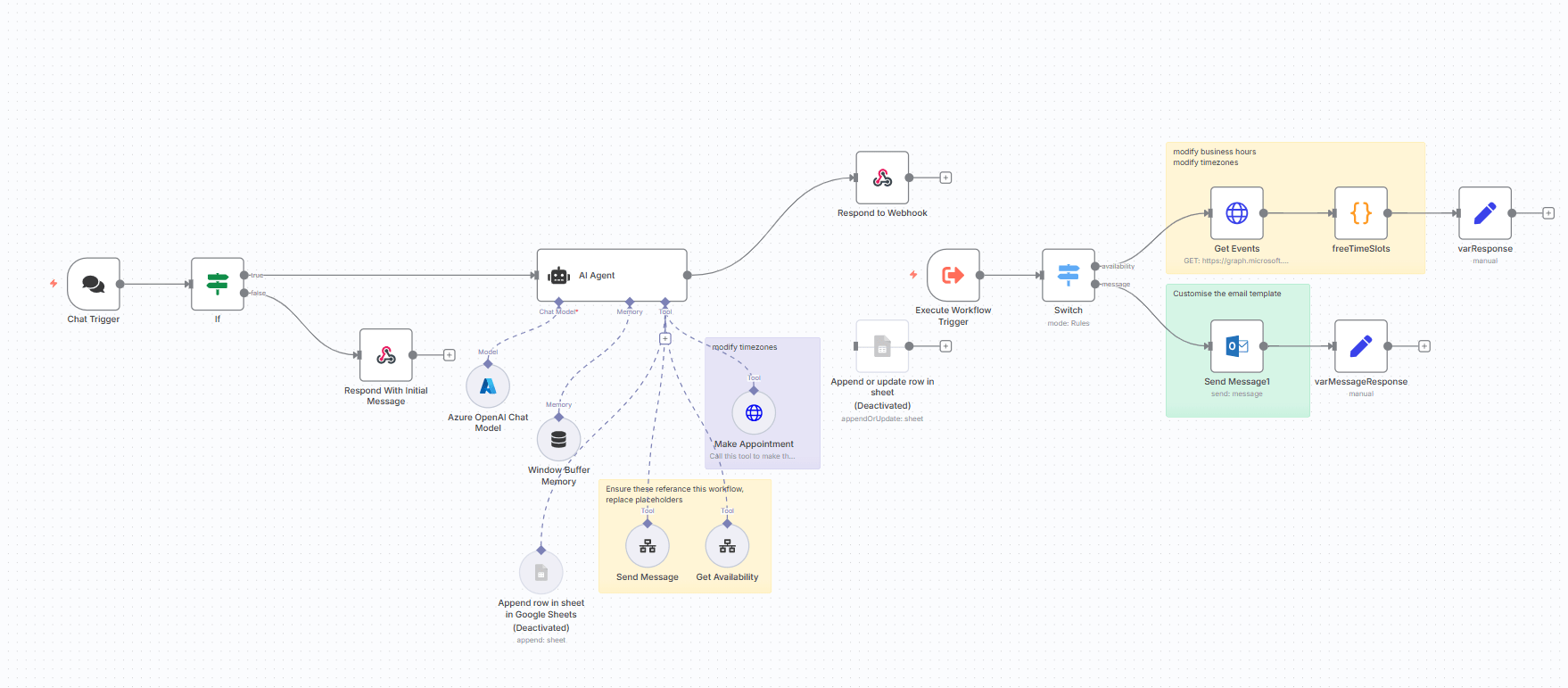
Optional: Microsoft Outlook OAuth2 Setup
Outlook integration allows workflows to:
- Read and send emails
- Automate meeting scheduling
- Trigger flows from inbox events
The script includes placeholders to configure:
- Client ID / Secret
- Redirect URI
- Required Microsoft Graph Permissions
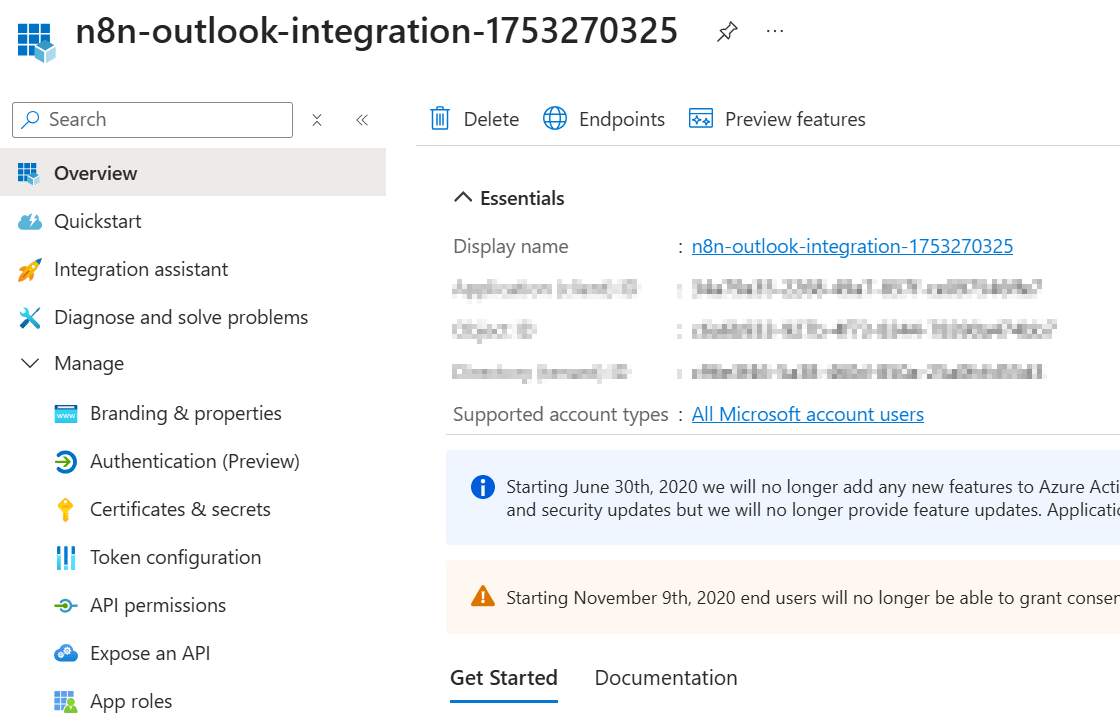
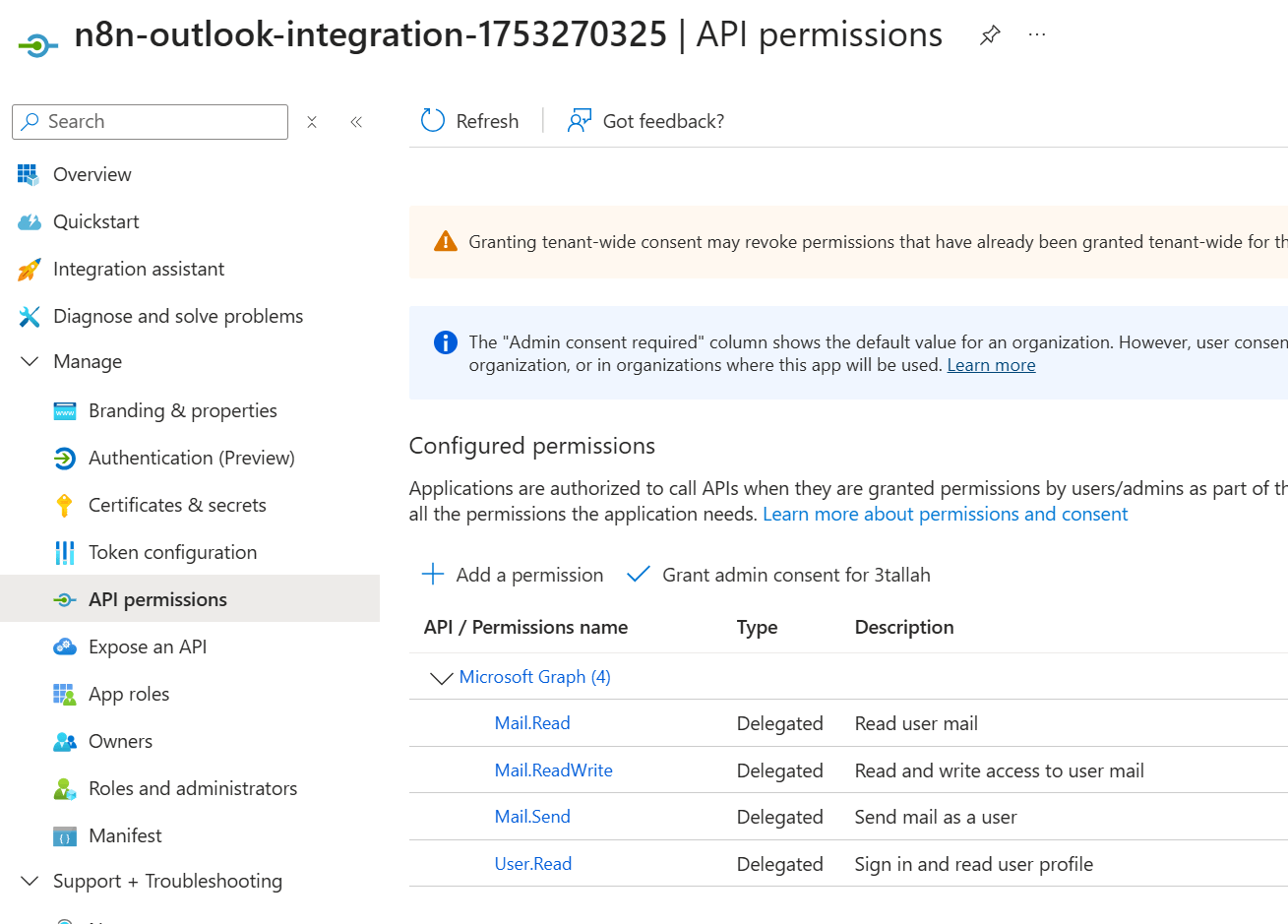
Troubleshooting and Tips
- Web App not starting? Ensure
WEBSITES_PORTis set to5678 - Environment variables not loading? Double-check the App Service configuration
- OpenAI errors? Validate the key and endpoint from the Azure portal

